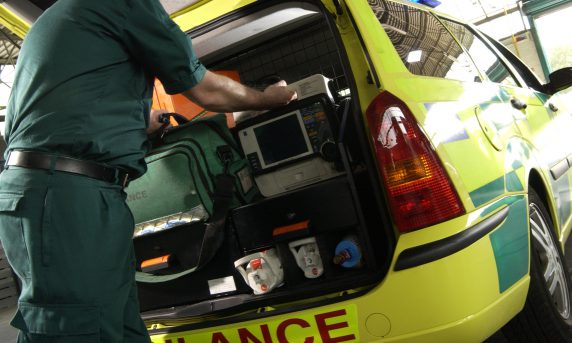GP saves sister’s life after cardiac arrest at a rural marathon

A GP helped to save her sister’s life after she collapsed during a marathon in Scotland’s Western Isles.
Dr Rebecca Robson, a GP in Stornoway who was also competing in the Isle of Harris Marathon along with other family members, came to her sister’s aid after she suffered a cardiac arrest following the first nine-mile leg of the run.
Her sister Michelle Mcleod, 37, received CPR within a minute from a team of nurses, another doctor and first responders from the Mountain Rescue team.
Dr Robson later joined the medical team to provide an assessment as part of her sibling’s resuscitation once she was aware of her collapse.
Another GP, Dr Andrew Naylor, also helped with treating Ms Mcleod before she was transported to the nearest hospital, 55 miles away.
The route to Western Isles Hospital largely comprises single-track roads, so Ms Mcleod was transported via air ambulance with Dr Robson, alongside her sister-in-law – who is an intensive care nurse – a paramedic, and HM Coastguard volunteer.
It took one hour and forty minutes to arrive at Western Isles Hospital, before Ms Mcleod was retrieved later that day to Glasgow’s Queen Elizabeth University Hospital.
Dr Robson highlighted to Pulse about the difficulties of practising in a rural location and the lack of access to secondary care during an emergency.
She said: ‘Michelle deteriorated in the helicopter and it was difficult to manage as it was so noisy. We found it difficult to liaise as a team, as it was also bumpy and cramped.
‘We did some simple airway manoeuvres and there was slight improvement, but we were delighted to land and transfer into the A&E resuscitation area, where Michelle was intubated and ventilated, then stabilised and later that day retrieved to the intensive care unit.’
Ms Mcleod was in hospital for 11 weeks, with delirium and hypoxic brain injury. Dr Robson said she was agitated and confused for about eight of those weeks, initially unable to remember years of her life – including the births of her five and two-year-old children.
Dr Robson added: ‘Gradually, the lucid periods started to increase and suddenly, after about two months, she really started to improve. She had an implantable cardioverter-defibrillator fitted in October and was discharged home. She now has a short term memory deficit, meaning difficulty forming new memories, but she’s learning to overcome this by writing lists.’
Dr Robson’s family paid tribute to the Mountain Rescue service, NHS Scotland, Lucky2BeHere – a charity that provides defibrillators in the local region – and the First Responders charity.
GP leaders at last month’s Scottish LMCs conference voted to better support rural GPs, while Pulse’s investigation earlier this year revealed lengthy ambulance waiting times across the UK when a GP calls for help.
Pulse October survey
Take our July 2025 survey to potentially win £1.000 worth of tokens

Visit Pulse Reference for details on 140 symptoms, including easily searchable symptoms and categories, offering you a free platform to check symptoms and receive potential diagnoses during consultations.










